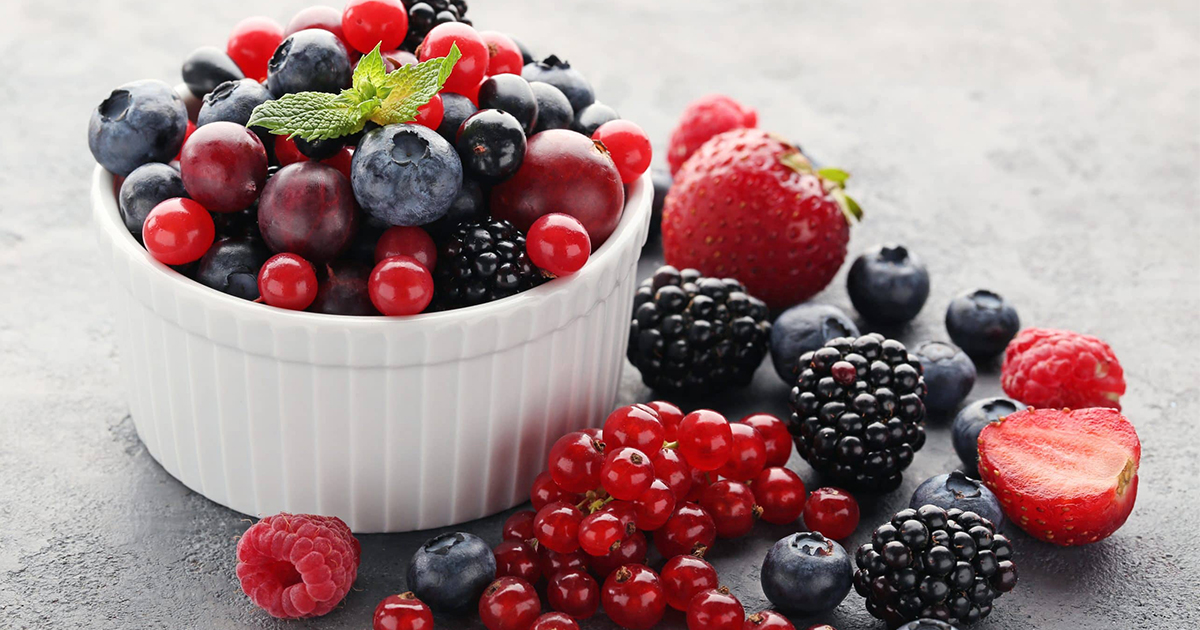Power Up Kidney Health: Berries the Superfood

People with chronic kidney problems, particularly those on dialysis, are at a greater risk of experiencing increased levels of oxidative stress. Excess free radicals can start damaging our body tissues when there is high oxidative stress. Here is where a diet rich in antioxidants can help. Antioxidants can protect us by minimizing the effects of oxidative stress on our bodies.
Fruits and vegetables are good sources of antioxidants. However, overeating these foods can disrupt blood potassium levels, which cannot be good for people suffering from chronic kidney problems. Therefore, eating the right portion size is important, and choosing kidney-friendly plant food could be beneficial too!
Berries are a great choice of kidney-friendly fruit. They are packed with dietary fiber, antioxidants but low in potassium. Different types of berries contain different properties and potential health benefits.
- Blueberry – One of the richest sources of anthocyanins. Protects against oxidative damage to cells.
- Cranberry – Rich in proanthocyanidins. Protect against urinary tract problems by preventing the bacteria from sticking to the urinary tract walls.
- Strawberry – Packed with polyphenols, which is protect against oxidative stress.
- Raspberry – Good source of phytochemicals that provide protective health benefits.
If eating berries alone is not attractive enough, try this mixed berry salad provided by Davita Kidney Care!
Mixed Berry and Basil Fruit Salad
Ingredients
- ¼ cup of almond and coconut milk blend / Any milk or cream substitute without phosphate additives
- 2 tablespoons white balsamic vinegar
- 1 tablespoon sugar
- 1 cup of fresh blueberry
- 2 cups of fresh strawberry
- 10 fresh basil leaves
Preparation
1. Mix almond milk, vinegar, and sugar in a medium bowl
2. Cut strawberries into quarters.
3. Add the berries to the liquids and toss
4. Cover and refrigerate for 1 hour
5. Chop the basil and stir into the salad when ready to serve
- * All research and clinical data should be used as reference purposes only, results may vary.




